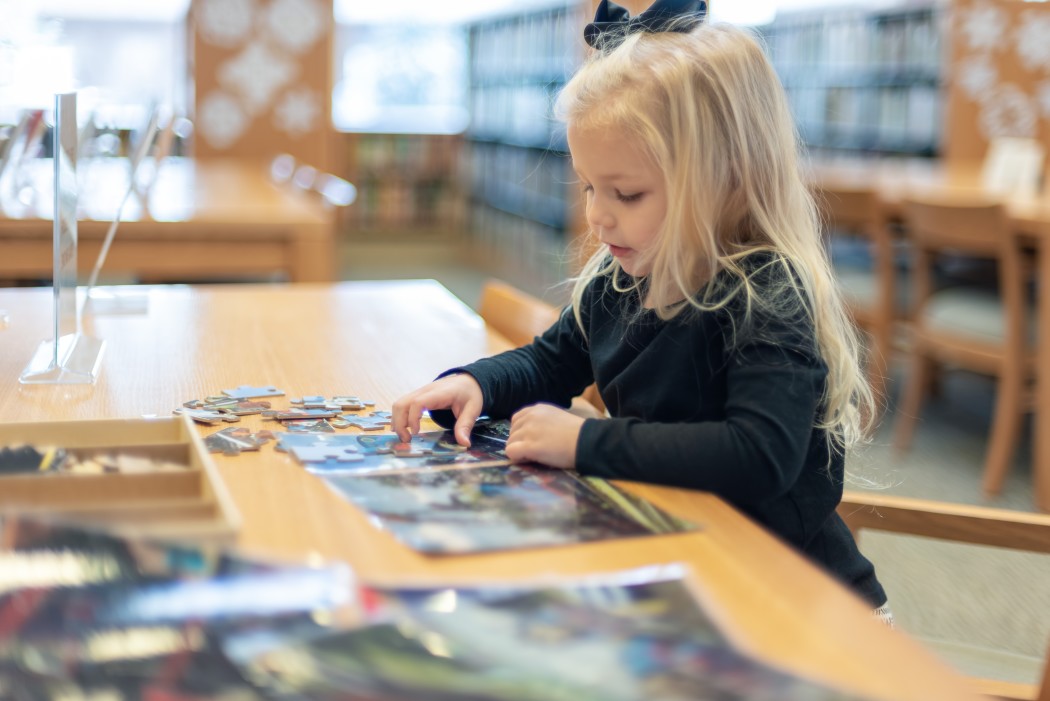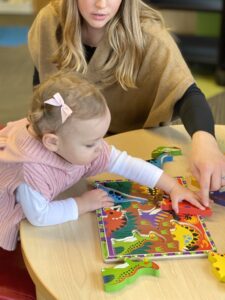Preschool children are continuously curious and inquisitive. Our job as parents is to support and nurture this curiosity to develop skills and increase cognitive thinking. One way we can encourage mindful play is through the use of puzzles. Your child will have a blast with the puzzle, while you can enjoy some quiet time and still know there are hidden benefits from this activity.
Strengthening the Concentration Muscle
When a preschool-aged child concentrates on one puzzle piece, trying to fit it into various spaces, they learn to focus and pay attention to detail. They take time to work out how the piece fits, and the longer and longer they spend with each piece, the more they are strengthening their concentration muscle for future longer tasks.
Fine Tuning the Fine Muscles
When working puzzles with their adorable, chubby fingers, preschool children develop their eye-hand coordination, grip, and movement skills. As they move and fit each piece, they engage their fine motor skills and coordinate visual cues better.
Solving Problems One Piece at a Time
Working a puzzle is one of the most straightforward problems a child can experience. They have a piece that fits into a specific place and have to figure out where that is. They must understand the concepts of space and shapes to find where a piece goes. This simple problem-solving experience will give your preschool-aged child the confidence to work on more challenging problems in the future.
Building Language as You Build Puzzles
When you sit with your child to complete puzzles, using language is one of the easiest ways to enhance the experience. You can naturally build their language skills by talking them through the puzzle process, discussing what the puzzle is, and encouraging and praising their work.
Here are some great talking points:
- Ask them what they see when they look at the puzzle.
- Ask them what shapes, colors, animals, vehicles, etc., they see.
- Have your child count the pieces before assembling.
- Walk your child through each step as they go through the process (example: You just put the train peg into the train spot.)
Growing Self Esteem Through Completed Puzzles
It can be disappointing when you can’t complete something on the first try. This is very true for preschool-aged children and puzzles. Your child might not get all the pieces in the right place the first time they play with a puzzle, but once they do put all the pieces together, their self-confidence grows exponentially. They DID IT! And with praise from you, they will know it is a significant accomplishment. This confidence will continue to grow as they move onto more challenging and harder puzzles and life’s challenges down the road.
Building Social Collaboration and Teamwork
When a preschool-aged child is in a childcare or group play environment with other children, a new dynamic arises when puzzles are introduced to the group. The children have to work together to share and to put the puzzle together. It helps them see that other people in their environment can help them solve problems if they work together.
When looking for puzzles for your child, you should find ones that are age-appropriate and in the interest of your child. You can find a variety of options here or subscribe to a subscription box. Now get on the floor and solve a puzzle with your preschooler and watch them develop new skills!


